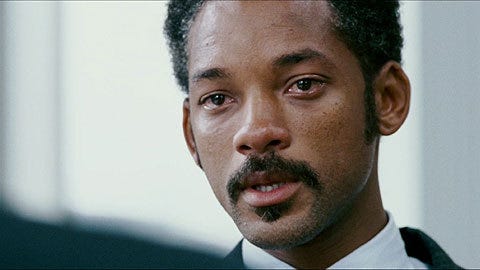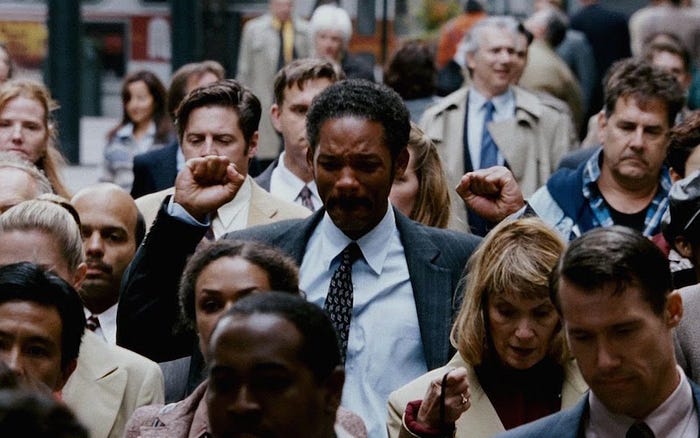
We’ve all heard the saying pursuit of happiness, whether it be from the Declaration of Independence or the movie starring Will Smith. The question is, is this pursuit the right pursuit or even obtainable in the long run? If you ask almost anyone what they want to get out of life, many would say “I want to be happy”, but what is happiness really? Can we always be happy?
Studies have shown that humans often fall victim to the hedonic happiness treadmill, which states that regardless of what happens to people in their lives, their levels of happiness will eventually return to their baselines. For example say you get a new car you’ve always dreamed about since you were a little kid. Instantly you receive a shot of endorphins as you max out the speed limit on the highway. However, over time you will grow accustomed to the car, drive the speed limit, and might even forget why you wanted it in the first place. The initial spike of happiness soon dissipates and we return to our original level where we were before. In contrast, this works the same way with sadness, there will be low times, but gradually you will return to the equilibrium state as you were before.
So given this information, you could argue that as long as you limit your downside of pain, you will always stay within this equilibrium range with a continuous upside for happiness. Minimizing pain would allow someone to never get too low, while still remaining happy. While this might seem like a good strategy, I would argue paradoxically that the opposite is actually a better way to achieve a better state of happiness.
Pain

Pain is the universal constant of the human condition. Therefore, the attempt to move away from pain, to protect oneself from all harm, can only backfire. Trying to eliminate pain only increases your sensitivity to suffering, rather than alleviating your suffering. It causes you to see dangerous ghosts in every nook, to see tyranny and oppression in every authority, to see hate and deceit behind every embrace.
— Mark Manson, Everything is Fucked: A Book About Hope
I think Mark hits the nail on the head here. While people do their best to avoid pain, the uncomfortable truth is that it never goes away. Now, there are two ways of looking at this. The nihilistic point of view which would say that this reinforces the “why try?”, “Life sucks”, “there's no meaning” argument, but I would take the other side. Pain is what makes the experience of life worthwhile. When things are going good and you’re feeling happy these emotions are just the temporary removal of pain. To numb your pain all together would result in numbing all feelings and emotions. Remove theses and one would really question one's purpose of living.
The most difficult thing to understand about suffering is that the more we try to avoid it, the more it consumes you. The ability to take a step back and focus on the things that are in our control and let go of the things that aren’t in our control is the only way to remain mentally stable. Life often comes down to our perception, which we have the ability to control.
“There is no good or bad without us, there is only perception. There is the event itself and the story we tell ourselves about what it means.”
―Ryan Holiday, The Obstacle Is the Way
Pursuit

So instead of trying to numb your pain as many try to do, embracing it and going towards it might actually yield better results.
While its tough to do, reflecting on your pain from a different perspective and being able to create your own narrative behind what you’re feeling is important. You can either go with the “woe is me” approach and continue to let this pain run your life or you can see this pain as a positive. Rather than sitting in our own sorrows, it would be better to ask the question “What can I learn from this?” or “How can I use this to my advantage?”. Taking this point of view allows us to take an offensive position instead of a defensive position. Being able to smile through the bullshit and see it as yet another challenge the universe is throwing your way almost makes it comical when something unfortunate happens. The goal is to become antifragile.
“Antifragility is beyond resilience or robustness. The resilient resists shocks and stays the same; the antifragile gets better.”
― Nassim Nicholas Taleb, Antifragile: Things That Gain from Disorder
The ability to bounce back from unfortunate events and actually use them to get better shifts our perspective out of the victim mentality. Welcoming failures and disappointments with the anticipation that it will actually make us better eliminates the fear it creates and allows us to move forward with enthusiasm.
“You have to bounce from failure to failure without losing enthusiasm. This trust allows you to be at peace and to freely throw your intentions into the world. Have faith that they will come back.”
― Russ, “It’s All In Your Head”
I’m sure you’ve heard about post-traumatic stress disorder, but what about post-traumatic growth? This is the same concept of the saying “What doesn’t kill you makes you stronger”. We see this in the natural biology of our own bodies. We break down muscle tissues by putting them under intense tension over and over again and this eventually leads to increased strength over time. Without the stress and tension, our bodies remain weak. The same thing goes for the mind. Being able to flip something that most would see as a big disappointment, setback, or let down into a growing opportunity not only gives you the strength to overcome your current depressive state but also gives you power over any future ones that will inevitably come later in life.
“What do you say to yourself when life is kicking your ass? When you keep failing at the things you truly want? This question was asked to me.
Once again this isn’t for everybody.
I thank God for testing me again.
I go back to what I call the cookie jar.
The cookie jar is a place in my mind where I put all things bad and good that shaped me.
Some people try to forget the bad in their life.
I use my bad for strength when needed, great lessons learned.
In that cookie jar, I pull out whatever I need for the task at hand.”-David Goggins, “Can’t Hurt Me”
So what’s in your cookie jar? Everyone has their own victories and failures from past experiences that they can pull out and say “Damn, I made it through that? This is nothing”. It’s that feeling of when you look back on something that at the time seemed like the end all be all, but now you sit back and laugh about how worked up you were. I know its hard to realize it in the moment but to keep that perspective when shit hits the fan helps to keep order in times of chaos. No matter how bad you feel right now, or how good you feel right now just know that there will come a time where that will flip flop. This too shall pass, and the ability to welcome the bad times is what makes the good times even better.
“ Life happens like tides. One minute you’re low and feelin’ shallow, then all of a sudden you rise’”
―J Cole, Legendary

Inspired by these books. Highly recommend.
“Can’t Hurt Me: Master Your Mind and Defy the Odds” — David Goggins
“Everything is Fucked: A Book About Hope” — Mark Manson
“Antifragile” — Nassim Nicholas Taleb
“The Obstacle is the Way” — Ryan Holiday
“It’s All In Your Head” — Russ
